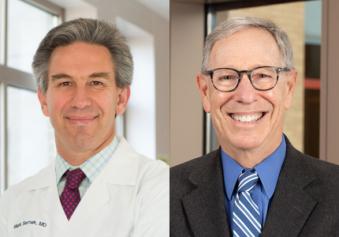-
About
- Departments & Offices
-
Academics
- Public Health
- Biomedical Sciences
- Physician Assistant
- Special Master’s (MBS)
-
Admissions & Financial Aid
- Tuition & Fees
-
Student Experience
-
- Student Resources by Program
- Academic & Student Support
- Wellness & Wellbeing
- Student Life
- Events & Traditions
-
-
Research
- Research Labs & Centers
- Tufts University-Tufts Medicine Research Enterprise
-
Local & Global Engagement
- Pathway & Enrichment Programs
- Global Health Programs
- Community Engagement
Named Professorships and Directorships
Tufts University School of Medicine celebrates the continuing achievements of its named professors and directors.
Endowed and Term Professorships
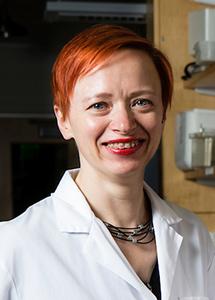
American Cancer Society (Massachusetts Division) Professorship in Molecular Biology
Ekaterina (Katya) Heldwein, PhD
About the fund
This professorship was established in 1968 by the American Cancer Society (ACS)'s Massachusetts Division. Founded in 1913, the ACS is dedicated to eliminating cancer as a major health problem. The professorship is held by a senior faculty researcher whose research focuses on the field of cellular differentiation and growth and leads to the better understanding of cellular processes, including those aberrant processes which contribute to cancer. In addition, the holder takes an active part in teaching medical students and post-graduate medical students in his or her special fields of competence and helps in the coordination and integration of cancer teaching.
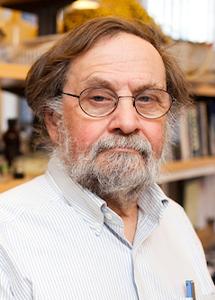
American Cancer Society Research Professorship
About the fund
This professorship, supported by the American Cancer Society's national program, provides funding to a full-time, mid-career investigator who has made seminal contributions to cancer research and who provides leadership in his or her research area.

Andrew S. Levey Professorship
About the fund
This professorship was established in 2021 by friends and colleagues to honor Andrew Levey, MD, former chief of the William B. Schwartz Division of Nephrology at Tufts Medical Center and Dr. Gerald J. and Dorothy R. Friedman Professor of Medicine emeritus at the School of Medicine. It supports young investigators in the Division of Nephrology.

Benjamin Andrews Chair in Surgery
About the fund
This professorship was established in 1985 through an estate gift from Benjamin F. Andrews, M1914, and his wife, Catherine M. Andrews, with support from the TMCA Foundation. Andrews was a prominent physician in Worcester, MA, and former chief surgeon at Worcester City Hospital. The Andrews Chair supports an outstanding surgeon whose principal clinical appointment is at Tufts Medical Center.
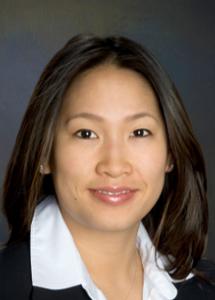
Harvey B. Ansell Professorship in Dermatology
Fei-Shiuann (Clarissa) Yang, MD, MBA, FAAD
About the fund
This professorship was established in 2003 through a gift from the Harvey B. Ansell Trust. Harvey B. Ansell, M32, served as clinical instructor in dermatology at the School of Medicine from 1952 through 1965. Ansell and his wife, Pauline, endowed this professorship to commemorate his long relationship with the school and his successful dermatology practice. The Ansell Professorship supports an outstanding faculty member from the School of Medicine’s Department of Dermatology.
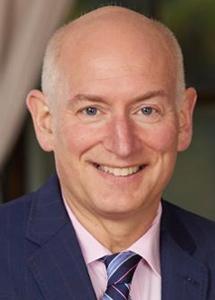
Dr. Frances S. Arkin Chair in Psychiatry
About the fund
This professorship was established in 1992 through an estate gift from Frances S. Arkin, J1925, M1929, for the benefit of the Department of Psychiatry at the School of Medicine. A Boston native, Arkin was a noted psychiatrist and psychoanalyst who founded the first psychoanalytic training program at New York Medical College in 1944, where she was a faculty member for 24 years. She was also a past president of the American Academy of Psychoanalysis.
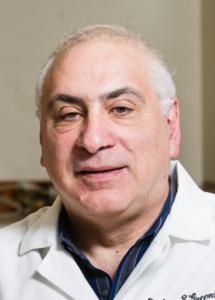
Dr. Robert C. and Veronica Atkins Professorship in Metabolism and Nutrition
About the fund
This professorship was established in 2006 by the Dr. Robert C. and Veronica Atkins Foundation to support the teaching and research efforts of an outstanding investigator seeking to understand the complex biology of metabolism—especially as it relates to diabetes, nutrition and obesity—and to develop new treatment strategies for these conditions. The Atkins Professor provides international leadership in the study of metabolism at Tufts University and serves as a strong proponent of metabolic research, clinical and research training, and patient care, with a goal of positively impacting the health of individuals in the community and beyond.
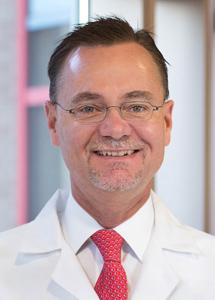
Henry H. Banks Chair in Orthopaedic Surgery
About the fund
This professorship was established in 1978 by friends and colleagues of Henry Banks, M45, J74P, AG74P, in recognition of his professional accomplishments. Banks was the first full-time chair of orthopaedics to be based at the School of Medicine, after benefitting from the tutelage of renowned physicians and researchers at Beth Israel Hospital, Children’s Hospital in Boston, Massachusetts General Hospital, and Peter Bent Brigham Hospital, where he was chief of orthopaedic surgery. He served in leadership positions with the American Academy for Cerebral Palsy, American Board of Orthopaedic Surgery, and the American Orthopaedic Association. Banks was appointed dean of the School of Medicine in 1983, becoming dean emeritus and professor emeritus in 1990.
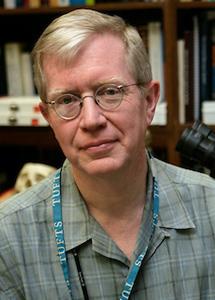
George A. Bates Professorship in Histology
About the fund
This professorship was jointly established in 1926 as a memorial to George A. Bates, AG1904, D1905 (1847-1925) by the alumni associations of Tufts School of Medicine and Tufts School of Dental Medicine to fund a professorship in histology benefitting both schools. Bates was a professor of histology at Tufts’ Medicine and Dental Medicine schools. He graduated from Boston Dental College in 1889 with the degree of DDS and received his MS in 1904 and DMD (extra ordinem) in 1905 from Tufts College. An inspiring and dedicated teacher, his interests were broad, and he strove to both widen his students’ intellectual horizons and their compassion. In addition to his teaching, Bates also conducted histological and embryological research, and he ran a private dental practice in Salem and Auburndale, MA.
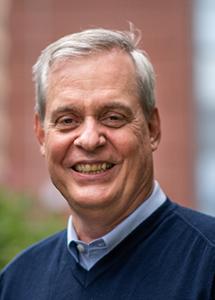
Dorothy Todd Bishop Research Professorship
About the fund
This professorship was established in 2021 through an estate gift from Stephen L. Bishop, EG70, to support a faculty member who conducts clinical and/or basic science research designed to encourage the development of treatments for malignant diseases such as cancer. The fund is named for Mr. Bishop’s late wife, Dorothy, and honors the excellent care she received from School of Medicine faculty member and hematologist Jane Desforges, MD, M45.
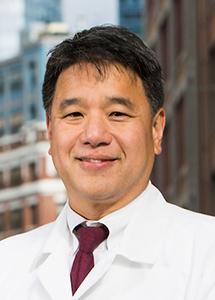
Paul and Elaine Chervinsky Professorship in Immunology
About the fund
This professorship was established in 2019 by Paul Chervinsky, MD, A48, M52, A77P, J79P, and his wife, Elaine, to support a faculty member studying immunology at the School of Medicine. A proud double Jumbo, Chervinsky was medical director and principal investigator at Northeast Medical Research Associates Inc., one of the largest clinical research centers in the U.S. He also ran a private practice, Allergy Associates Inc. Chervinsky received Tufts University’s Distinguished Service Award in 1978 in recognition of his extraordinary service to Tufts and professional excellence.
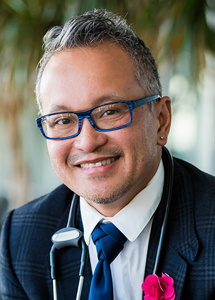
Jane F. Desforges, M.D., Chair in Hematology and Oncology
About the fund
This professorship was established in 1998 by the Pratt Medical Group Inc. in honor of distinguished faculty member and alumna Jane F. Desforges, M45 (1921-2013). A renowned hematologist, Desforges was an authority on anemia, specifically sickle-cell disease and Hodgkin’s lymphoma. A recipient of several teaching awards at Tufts and the first woman to receive the American College of Physicians’ Distinguished Teacher Award, Desforges cared deeply for her students and her patients. The Desforges Chair supports an outstanding School of Medicine faculty member whose work strengthens teaching and research capabilities in the areas of hematology and oncology.
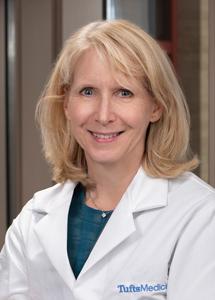
Louisa C. Endicott Professorship in Medicine
About the fund
This professorship was established in 1950 by Samuel Clapp Endicott in memory of his mother, Louisa. Mr. Endicott was a musician and composer who served as an interpreter for the Department of Justice during World War I and later as head of the language department at the New England Conservatory of Music in Boston, MA.
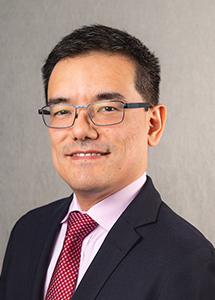
Alice Ettinger – Jack R. Dreyfuss Chair in Radiology
About the fund
This professorship was established in 1998 primarily through an estate gift from radiologist Jack Dreyfuss, M51, as well as friends and colleagues in honor of longtime Tufts radiology professor and pioneer, Alice Ettinger (1899-1993). Ettinger helped to bring new X-ray techniques to diagnose gastrointestinal illness to the United States. She was the first radiologist-in-chief of New England Medical Center (now Tufts Medical Center) and the School of Medicine’s first chair of radiology, where she taught for more than 50 years. Jack Dreyfuss was a major figure in the clinical practice of radiology at Massachusetts General Hospital for 25 years. He was known as a meticulous gastrointestinal radiologist and an outstanding teacher of the art of fluoroscopy. Dreyfuss was Ettinger’s first resident in the U.S.
Dr. Gerald J. and Dorothy R. Friedman Professorship in Medicine
Mark Sarnak, MD, MS and Andrew S. Levey, MD (emeritus)
About the fund
This professorship was established in 2000 by the Gerald J. and Dorothy R. Friedman New York Foundation for Medical Research for the chief of the Division of Nephrology at Tufts-New England Medical Center (now Tufts Medical Center). Gerald J. Friedman was a pioneer in the field of clinical nutrition and advocate for nutrition’s role in preventing illness who also specialized in cardiology, diabetes and metabolism, endocrinology and internal medicine. He and Mrs. Dorothy R. Friedman believed in the importance of giving back and were involved with several health-related causes at Tufts and elsewhere. The Friedman Professorship supports operations for clinical care, research, and education in nephrology within the William B. Schwartz Division of Nephrology at Tufts Medical Center.
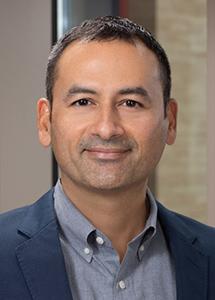
Dr. Jane Murphy Gaughan Professorship
About the fund
This professorship was established in 2018 through a gift from Gerard Gaughan, MD, M71, in memory of his wife, Jane Murphy Gaughan. The Gaughans have championed diversity at Tufts and other institutions. This professorship is meant to be awarded to a physician leader who is responsible for diversity initiatives and programs at the School of Medicine.

Annetta and Gustav Grisard Professorship in Neuroscience
About the fund
This professorship was established in 2008 through the generosity of Annetta Grisard-Schrafl, J94P, a Tufts international advisor and university trustee emerita, and her spouse, Gustav Grisard, PhD, J94P, to further strengthen Tufts’ ability to recruit excellent biomedical faculty. The Grisard Professorship supports an outstanding neuroscientist at the School of Medicine.
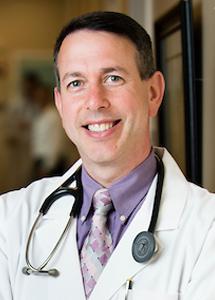
Jaharis Family Chair in Family Medicine
About the fund
This professorship was established in 2000 by pharmaceutical industry leader Michael Jaharis, M87P, H15; his wife, Mary, M87P; son and family physician, Steven, M87; and daughter, Kathryn; through the Jaharis Family Foundation, Inc. The Jaharis Family Chair supports an outstanding physician and advocate in the area of family medicine.
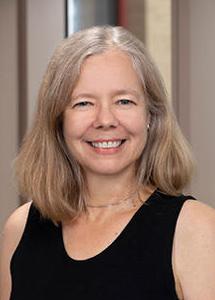
Sara Murray Jordan Professorship in Medicine
About the fund
This professorship was established in 1954 by the Theodore Edson Parker Foundation and colleagues in honor of Sara Murray Jordan, M1921, H43 (1884-1959). A world-renowned gastroenterologist, Jordan was a founding member of the Lahey Clinic in Boston, MA, and in charge of its Department of Gastroenterology from 1923 until her retirement in 1958. She also served on the Tufts University Board of Trustees from 1951 to 1959. Physician, scientist, and mother, she exemplified the best in her varied career.

David and Leona F. Karp Professorship in Pediatrics
About the fund
This professorship in pediatrics was endowed in 1984 by David Karp, M34, and Mrs. Leona F. Karp in honor of Karp’s 50th reunion from Tufts University School of Medicine. Karp practiced pediatrics in Quincy, MA, for 45 years. He was a senior instructor in pediatrics at the School of Medicine and served on the staff of the Floating Hospital for Infants and Children of New England Medical Center.

Ghahreman Khodadad Professorship in Neuroscience
About the fund
This professorship was established through a commitment from neurosurgeon Ghahreman Khodadad, MD, which concurrently established the Ghahreman Khodadad Center for the Study of Excessive Pathological Selfishness (EPS) based at the School of Medicine. The long-term vision of the Khodadad Center is to develop an understanding of the neurobiological underpinnings of EPS that can serve as a basis for the development of its relief. The Khodadad Professor conducts EPS research and serves as the director of the Khodadad Center.
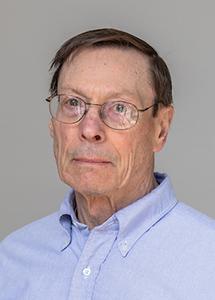
Louis Lasagna, M.D., Professorship
About the fund
This professorship was established in 1997 by the Behrakis Foundation, G.D. Searle & Co., and other friends and colleagues of Louis Lasagna, MD (1923-2003), dean of the Tufts Graduate School of Biomedical Sciences from 1984 to 2002 and founder, and director of the Center for the Study of Drug Development from 1984 to 1998. Lasagna was often called the “father of clinical pharmacology,” largely a result of his considerable teaching and research in the field following the publication of his groundbreaking article in the American Journal of Medicine in 1954 in which he showed that taking a pill, even one containing no medication, can have a “placebo effect.”
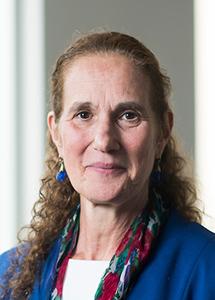
Morton A. Madoff, M.D., M.P.H., Professorship in Public Health and Community Medicine
About the fund
This professorship was established in 1999 by Tufts Health Plan to honor the many contributions that Morton Madoff, MD, MPH (1927-2009), made to Tufts Health Plan from its inception in the early 1970s to the present time. Madoff served as the chair of the Board of Trustees of Tufts Health Plan from 1978 to 1998, was professor and then chair of the School of Medicine’s Department of Community Health from 1974 to 1992, and served as dean of the School of Medicine from 1992 to 1995. An educator, physician, public health leader, and innovator, Madoff was a distinguished and greatly admired member of the Tufts community.
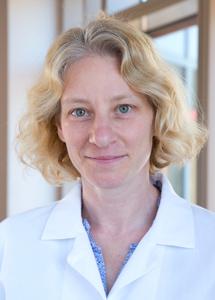
Elisa Kent Mendelsohn Professorship in Molecular Cardiology
About the fund
This professorship was established in 1998 by New England Medical Center (NEMC) and the School of Medicine to support the executive director of the Molecular Cardiology Research Institute at NEMC (now Tufts Medical Center). In 2006 the fund was renamed the “Elisa Kent Mendelsohn Professorship in Molecular Cardiology” in memory of the daughter of the chair’s inaugural holder, Michael Mendelsohn.

Linda and Jeffrey Moslow Professorship in Women’s Health and Menopause
(vacant)
About the Fund
The Linda and Jeffrey Moslow Professorship in Women’s Health and Menopause was established through the generosity of Linda Moslow, A16P, A18P, and Jeffrey Moslow, A86, A16P, A18P, to establish the Tufts Women’s Health and Menopause Initiative at Tufts. The initiative seeks to improve women’s healthcare and establish and understand medical and nutritional practices that support women through every stage of life.

Julia A. Okoro Professorship in Black Maternal Health
Ndidiamaka Amutah-Onukagha, PhD, MPH
About the fund
This professorship was established in 2021 by an anonymous couple to support a faculty member studying Black maternal health. The fund is named for Julia A. Okoro, the grandmother of the professorship’s first holder, Ndidiamaka Amutah-Onukagha who was a midwife in Nigeria.

Louis E. Phaneuf Teaching and Research Professorship in Gynecology
About the fund
This professorship was established in 1959 in memory of Louis Eusebe Phaneuf, M1913, by his friends and colleagues. Renowned within the field of gynecology, Phaneuf was professor of gynecology at the School of Medicine for over 40 years. A leader of and surgeon in the Department of Gynecology at Carney Hospital, he served as consultant to no fewer than thirteen hospitals in the Boston area. Among the many honors bestowed upon Phaneuf by Tufts were an honorary Doctor of Science degree and the Distinguished Service Award. In 1938, he was made an Officer of the Order of the Crown by King Leopold of Belgium.
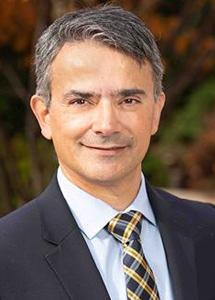
Maurice S. Segal, M.D., Chair in Medicine
About the fund
This professorship was jointly established by the School of Medicine and St. Elizabeth's Hospital, then one of its major teaching hospitals, in honor of Maurice S. Segal, A1928, M32, A65P (1907-1988). Dr. Segal, an internationally recognized pioneer in the field of inhalation therapy and respiratory care, was pivotal in the development of one of the earliest lung stations in the nation for respiratory care and research. His contributions to teaching and research at Tufts spanned a period of 40 years and led to his appointment as professor emeritus in 1973.
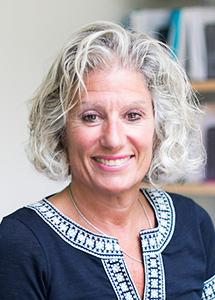
Arthur E. Spiller, M.D., Professorship
About the fund
This professorship was established in 2015 with an estate gift from Arthur E. Spiller, A34, M38. Spiller practiced ophthalmology in Needham, MA, for many years and was professionally associated with the Massachusetts Eye and Ear Infirmary, the V.A. Regional Office, Boston City Hospital, and Holy Ghost Hospital in Cambridge, MA. The Spiller Professorship supports an outstanding biomedical researcher-educator at the School of Medicine who demonstrates expertise in the field of genetics.
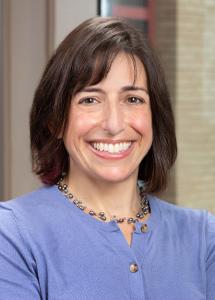
Barbara McGovern, M.D., and David Stone, M.D., Professorship
About the Fund
This professorship gift will support an infectious disease faculty member working at the intersection of public health, infectious disease and substance abuse. Created through the generosity of the McGrath Family Foundation, this gift was inspired by the legacies of two esteemed faculty members, Barbara McGovern, MD, and the late David Stone, MD. Their commitment to excellence in public health and infectious disease shaped many careers, including Donnie McGrath’s, and left an indelible mark on countless others.

Edith Rieva and Hyman S. Trilling Professorship
About the fund
This professorship was established in 2016 through a gift from Hyman S. Trilling, A28, J57P, A62P, AG67P, and Edith Rieva Trilling, J57P, A62P, AG67P. A businessman with an economics degree from Tufts, Mr. Trilling founded Hub Cash and Carry Groceries, frozen fishery company Boston Bonnie, Inc., and Boston Bonnie Bakers, Inc. Long interested in the concerns of the elderly, he and Mrs. Trilling founded the Trilling House assisted living center in Randolph, MA, and were also benefactors of the Hebrew Rehabilitation Center for the Elderly. The Trilling Professorship supports an outstanding scholar-educator at the School of Medicine whose research is related to geriatrics or aging.

Kenneth and JoAnn G. Wellner Professorships
About the fund
These professorships were established in 2018 through a gift from JoAnn Wellner, Esq., J63. A trustee emerita of Tufts University, Ms. Wellner’s long involvement with her alma mater has also included serving as chair of the university libraries’ Board of Overseers; as founding chair of the Friends of Tufts Libraries; on the Board of Advisors for the School of Arts & Sciences; and as chair of the Board of Advisors for the School of Medicine. Ms. Wellner’s gift commemorates her late husband, Kenneth Wellner, and his inspiring optimism in the face of great difficulties. The fund can either support a professorship for a senior faculty member, or two faculty development professorships, at the School of Medicine.

Charles M. Whitney Clinical Professorship in Urology
About the fund
This professorship was established in 1977 with an estate gift from Charles M. Whitney, MD. A graduate of Harvard Medical School, Whitney served on the Tufts faculty from 1903 to 1932, achieving the rank of professor of urology. The Whitney Professorship supports an outstanding faculty member from the Department of Urology.
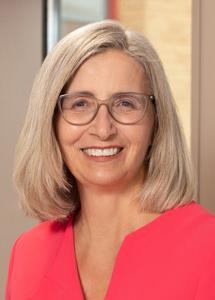
Sheldon M. Wolff Professorship in the Department of Medicine
About the fund
This professorship was established in 1995 by New England Medical Center (now Tufts Medical Center), Charles A. Dinarello, Mr. and Mrs. Glenn Tupper, Mr. and Mrs. Walter Moreira Salles, the Abbott Fund, and other close friends of Sheldon M. Wolff, MD, M83P. Wolff, a renowned expert on infectious and inflammatory diseases, served as physician-in-chief of New England Medical Center from 1976 until his untimely death in 1994. The Wolff Professorship supports an outstanding contributor to internal medicine who emulates Wolff’s leadership as a clinician, teacher, and investigator.

Natalie V. Zucker and Milton O. Zucker Chair in Rheumatology
(vacant)
About the fund
This professorship was established in 1998 with support from Milton Zucker, M30, Natalie V. Zucker, Tufts University, New England Medical Center (NEMC), and Pratt Medical Group. The Zuckers were ardent supporters of Tufts University School of Medicine throughout their lives. The Zucker Chair in Rheumatology is meant to fulfill the vision that the Division of Rheumatology and Arthritis Center continue to be internationally recognized affiliates of NEMC (now Tufts Medical Center) and the School of Medicine, committed to quality care and excellence in research.
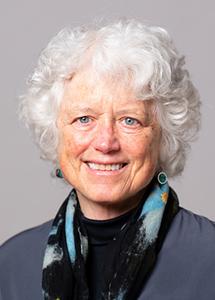
Natalie V. Zucker Professorship
About the fund
This professorship was established in 2001 by psychologist Natalie V. Zucker, MS. Tufts University School of Medicine is the alma mater of her husband, Milton Zucker, M30. The Zucker Professorship is designated for an outstanding scholar and teacher at the School of Medicine, selected from any discipline, who is willing to be a role model and mentor at the School of Medicine.
Endowed Directorships
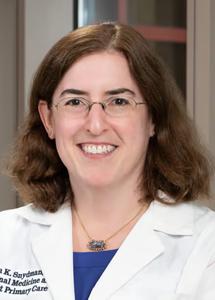
Dean Harris A. Berman, MD, Clerkship Directorship
About the fund
This fund was established in 2019 by Harris A. Berman, MD, FACP, on the occasion of his retirement as dean of Tufts University School of Medicine. Berman, a professor of public health and community medicine and infectious disease specialist, became dean ad interim in 2009 and served as dean from 2011 to 2019. Among his accomplishments as dean were the launch of the Maine Track Program and the opening of the Michael Jaharis Jr., M87P, H15, Anatomy Laboratory. Prior to arriving at the medical school, he was a pioneer in managed care and then chief executive of Tufts Health Plan. The directorship supports the faculty member who is responsible for the school’s medicine clerkship.
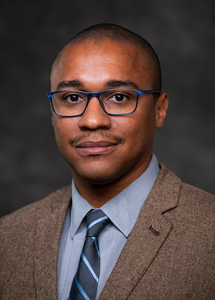
H. Jack Geiger, MD, Directorship in Health Justice
About the fund
This directorship celebrates Tufts University School of Medicine’s commitment to health justice and was made possible through the generosity of Sam W. Ho, MD, M76. It is held by the director of the Sam W. Ho Health Justice Scholars Program, which gives students the knowledge and skills to become physician-leaders who work in and engage with communities that face barriers to health and medical care. Dr. H. Jack Geiger (1925-2020) was a professor of community medicine at Tufts University School of Medicine and co-founded the nation’s first community health centers with Dr. Count Gibson in South Boston and Mound Bayou, Mississippi, in the 1960s.
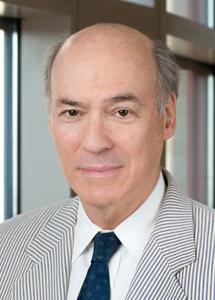
Hira and Toos Family Clerkship Directorship for Psychiatry
Jonathan (Jody) Schindelheim, MD
About the fund
This clerkship directorship was generously established in 2019 by a family wishing to sustain Tufts’ excellence in the clinical teaching of psychiatry and neurology.

Donald Shapiro, MD, M71, and Karlyn Shapiro Clerkship Directorship
About the fund
This fund was established in 2020 by otolaryngologist Donald Shapiro, MD, MPH, M71, and Karlyn Shapiro in honor of Shapiro's School of Medicine classmates on their 50th reunion and in gratitude for the excellent education that they received. The directorship supports the faculty member who is responsible for the surgery clerkship.
